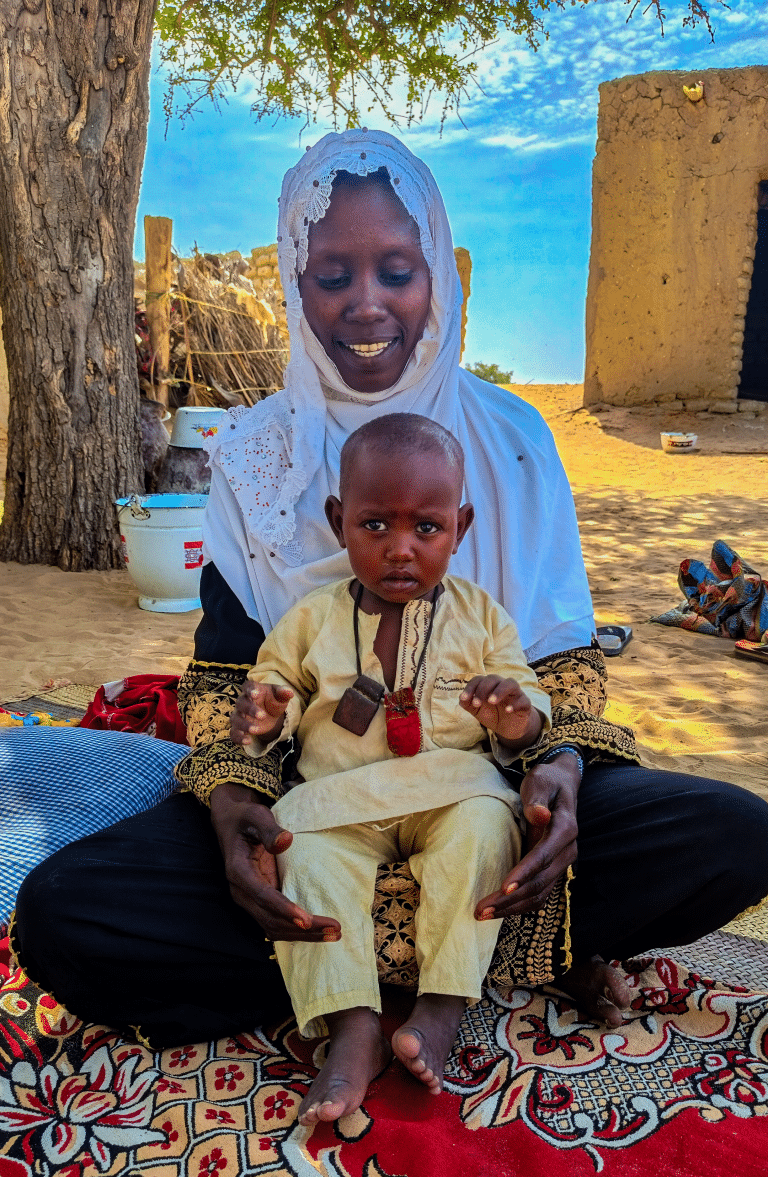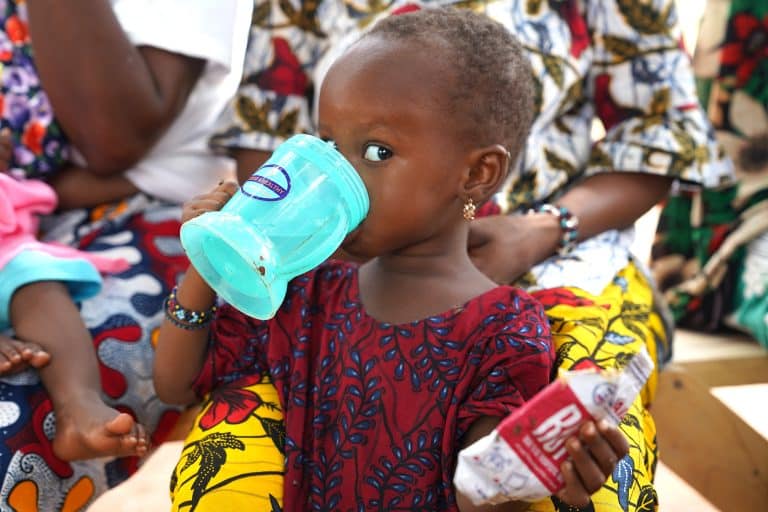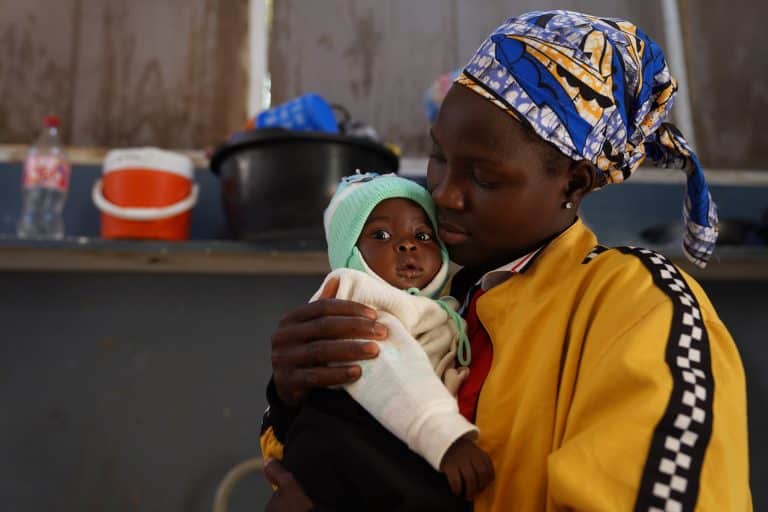“Our goal is to build the capacity, and increase the skills and knowledge of health workers, including doctors, nurses and nutritionists, in order to increase the efficiency and effective day-to-day running of stabilization centers across Borno State,” said Professor Jose P. Ambe, head of pediatrics at UMTH and ALIMA’s ITFC Coordinator. “Up until now, there have only been small training seminars here and there.”
Amid ongoing conflict related to Boko Haram, nearly 250,000 children in Borno State will suffer from severe acute malnutrition this year, according to UNICEF. ALIMA estimates that as many as 50,000 children under the age of five will need to be hospitalized in 2017 for SAM with complications throughout Borno State.
As part of the program, health workers will be trained in groups of seven for two weeks at a time, by ALIMA nurses who specialize in SAM detection, care and case management. The training will consist of both theoretical and practical, hands-on training modules.
“The opening of this school is really quite exciting,” said Lincoin Egbu, an ALIMA nurse at the UMTH ITFC, who will assist with the trainings. “As nurses, our first goal when caring for patients is to help them get better. But, unfortunately, SAM treatment isn’t necessarily emphasized in school, so it can be difficult. Now, the fact that I will be able to transfer knowledge and skills to people who are in the same position I was a few months ago, and who can then train others, will really improve patient care.”
In addition to the training school, the bed capacity of the ITFC was increased in June from 10 beds to 30 beds, and ALIMA continues to provide treatment free of charge for SAM patients with medical complications. The ITFC serves as a referral stabilization center for five health clinics in the area. It is expected that 1,200 children suffering from SAM with complications will be treated at the ITFC in Maiduguri over the course of six months.
At the same time, 1,200 mothers or caregivers, who bring their children to the treatment center for malnutrition, will be trained to use a simple, colored band, known as the MUAC, to measure their child’s mid-upper arm circumference in order to detect malnutrition at an early stage and avoid hospitalization.
ALIMA and its Malian partner AMPC (Medical Alliance Against Malaria) implemented a similar training program, known as the URENI School, in southern Mali in August 2015. As of April 2017, 262 health workers from 41 health facilities have been trained to screen and care for cases of severe acute malnutrition with complications.
The Alliance for International Medical Action (ALIMA) is a medical humanitarian organization that works hand-in-hand with a network of local organizations to provide quality medical care to the most vulnerable populations in emergency situations and recurrent crises. Based in Dakar, Senegal, ALIMA has treated over 2 million patients in 12 countries since its inception in 2009, and launched 10 research projects focused on malnutrition, malaria and Ebola.
ALIMA began working in Nigeria in July 2016, when teams were the first to provide medical and ambulatory nutritional care to IDPs and host populations in Monguno. The program has since expanded to include the opening of a clinic near the makeshift IDP camps in Muna Village on the outskirts of Maiduguri, which provides primary medical care to children under the age of five, and treatment for cases of severe malnutrition at the ITFC at the University of Maiduguri Teaching Hospital.
Since January 1, teams have performed nearly 15,000 pediatric consultations and treated more than 6,000 children for severe acute malnutrition. More than 3,800 pregnant women have benefitted from pre-natal consultations.
Cover picture: Sylvain Cherkaoui / COSMOS / ALIMA





